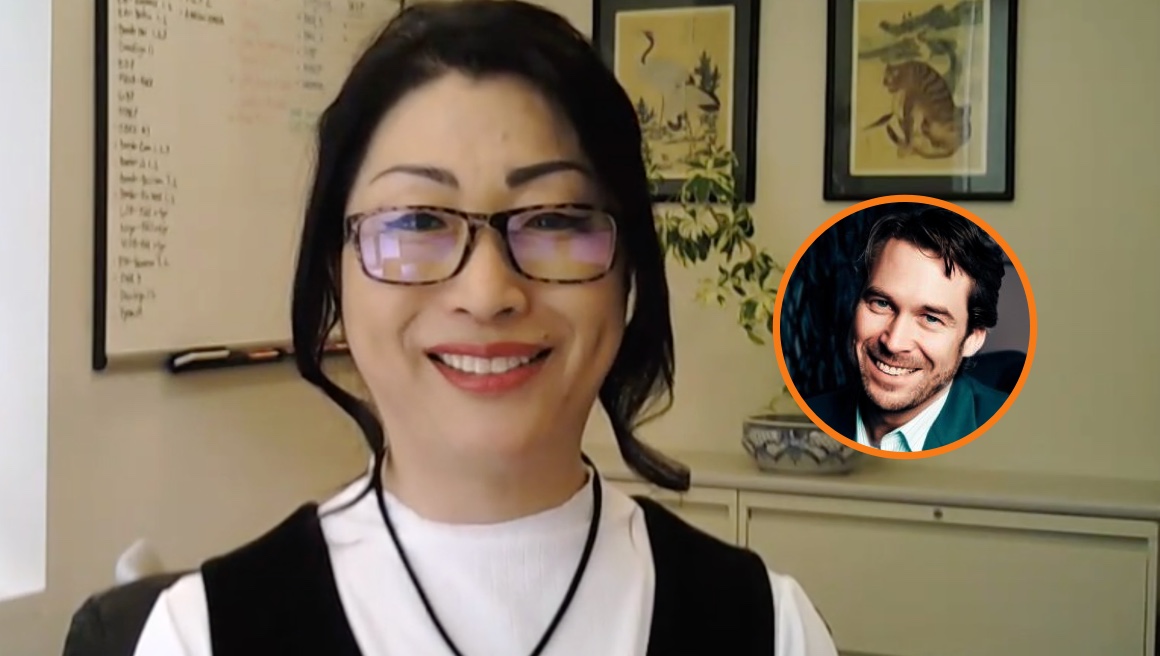

Moving to another country for education comes with many challenges, including language and cultural barriers. But, even when one is fluent in English, as in this case, our guest Jean Choy says that the cultural shock is no joke. Given the success depends on students’ success, it’s of the utmost importance for institutions to eliminate bias and help students from different backgrounds assimilate at an appropriate pace.
Jean Choy is the Associate Dean of Executive Education, Global EMBA & International Initiatives at the University of Washington, Foster School of Business. In today’s episode of Global Engagement Insights, Jean and host Ron Carson discuss how to work with students from different backgrounds, the importance of acknowledging and eliminating bias, and the difference between an excellent researcher and teacher and how to be both. Finally, Jean discusses inclusive learning and how to practice it.
Name: Jean Choy
What she does: Jean Choy is the Associate Dean of Executive Education, Global EMBA & International Initiatives at the University of Washington, Foster School of Business.
Company: University of Washington, Foster School of Business
Noteworthy: Jean wears many hats in her current role. She is in charge of the one-year full-time Global Executive MBA program, one of six MBA programs offered at the Foster School. One of the unique aspects of this program is that the cohort comprises primarily international students with about 10 to 15 years of work experience.
Where to find Jean: LinkedIn
“It’s important to share with you a bit about my background. I was born in South Korea but moved to Japan when I was about five. Language is new, and culture is new, so it was a shock and a learning experience.
But then I came to the US after about ten years and started my freshman year in high school. So prior to that, all my life, it was a small private school. And then I come to the States, and all of a sudden, I’m in the middle of a large public high school.
I attended an international school in Japan, so my English was fluent. I didn’t have any issues with communication, but I still had a really hard time getting acclimated. I still remember turning on a TV one day, and Happy Days was on. I’m listening to it and thinking, ‘I don’t understand what they’re saying. I don’t understand the jokes, the slang. I’m not following.’
And I thought, at that moment, that this was the strangest experience because I know English; I know how to speak and understand, and yet I’m watching TV, and I don’t get it. They were laughing when I didn’t think it was funny.
Going through that experience is one of the reasons why I have this soft spot for international students because it’s hard to come from another country to study English in itself, even if we assume they have great English. So the cultural shock is no joke.”
“There’s a research side — and in the academic university world, that’s highly regarded — but at the same time, being able to deliver that content in the classroom, it’s not always the same skill set.
Just because you’re a great researcher doesn’t always mean you might rate as well in the classroom. Ideally, we want faculty to be able to do both because the ability to teach is important as well as your research side.”
”The first one is how to read the room. I read this study that said 55% of our messages are translated from our facial expressions and body language. And as faculty, sometimes we are so focused on teaching that we might miss the cues and the signals that students might give out in their body language.
Effective teaching involves a back-and-forth interaction between the faculty and students. And it’s important for faculty to be able to face the students and then pause from time to time to see if any of them are giving out these body language signals. […]
Secondly, it’s important to try and repeat what you say. You don’t have to do anything other than repeat. So you were facing the whiteboard, looking at the screen, or not directly facing the students. For international students, especially when English is not their primary language, this part is very important.
Third, we often use idioms, slang, abbreviations, and all kinds of common English styles of phrasing things — which some students, especially international students, may not be familiar with.
So you might say something, but then again, you repeat what you just said, but you still have this look of not quite everybody being on board, in which case rephrasing is important.
Finally, reiterate. It means, let’s summarize it for them. Faculty are notorious for trying to provide as much information as possible in that limited time of the classroom; we want to impart so much knowledge and information because we think it’’s valuable.
But from the listener’s side, especially international students, it’s hard to catch everything; the majority might catch about 80%. So reiterating or summarizing once or twice before switching to a new topic is critical.”
